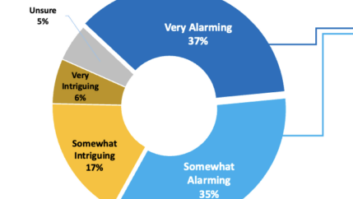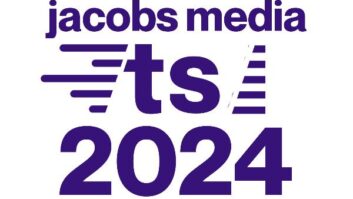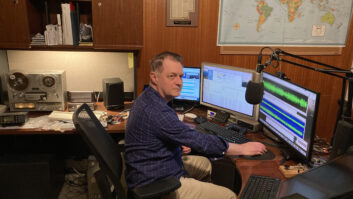Some Hands-On Research Reveals Deep Tensions and Puts the Finger on Solutions
On a recent, especially stressful business trip, I was pleasantly surprised to arrive at my hotel and find surprisingly luxurious surroundings. I double-checked the rate as I checked in at the front desk, and yes, indeed I was paying the very reasonable price I thought I had booked. The pleasant and professional front desk attendant assured me that all the U.S. high-end hotels were currently offering competitive rates in an aggressive attempt to lure the business traveler back to their frequently vacant rooms.
The marvels didn’t stop there. When I got to my room, I saw a note advertising the hotel’s new fitness center, which was offering massages at low “introductory” prices. Normally I wouldn’t have given this a second thought, but between the great price and my current condition, I thought, “What the heck, let’s give it a try.” But I only had about an hour to spare before my next appointment, and I guessed that there was no way they could fit me in on short notice, especially given the demand likely at such popular prices. So I figured I would feel like I tried to take advantage of a good deal, but wouldn’t feel guilty for indulging when they couldn’t accommodate me.
Surprise again; no problem taking me just when my schedule allowed. Well, now I was committed. I had to do it. Off to the fitness center to find the massage rooms.
Applying gentle pressure
The masseuse greeted me with a bit of small talk about how her SUV had been broken into the previous evening, and in addition to a broken window, the losses included her portable CD player and music collection – an important component of the massage therapist’s wares. She hadn’t yet replaced anything, still waiting for the insurance claim to be processed. She apologized and remarked, “I guess we’ll have to resort to the radio – scary, huh?”
I played along, waiting to hear what else she would say. So far, I had been pretty fortunate, and now I began to realize this could be more interesting that I had expected.
She explained how it had been years since she used the radio as background music for her work, and for that matter, she hardly listened at all anymore. Too many commercials, too much talk, too little music and too much repetition all contributed to her rejection of the medium. So it was with great reluctance that she approached a portable radio in the massage room and attempted to tune in a station.
She asked if I had any preference, and I suggested maybe classical music might be the most appropriate. She agreed, but had no idea where to look. Being in a relatively unfamiliar southern U.S. city myself, I suggested starting at the left-hand side of the dial.
After a few doses of Christian rock, we heard the word “conducted” and both said in tandem, “There’s one!” We laughed briefly at the unique association of a single word to a radio format, and she removed her hands from the radio. After about 30 seconds of completing the introduction to Liszt’s “Faust Symphony,” the announcer gave way to music, which continued in an uninterrupted and quite suitable fashion for the remainder of the half-hour session.
During this time, the masseuse admitted that she had had a client once who preferred to listen to classical radio during a massage, indicating that this was clearly an exception. She remarked that I must be from the local area. I told her I wasn’t and asked why she thought so (it certainly wasn’t my accent).
She replied in a somewhat incredulous manner, “Well, how did you know where to look for the classical radio station?” It was starting to sink in that maybe the mainstream (and particularly the younger) audience is really not radio-savvy anymore, and the medium is beginning to lose touch with the mass market.
I was talking with a smart, active and highly aware professional, yet listening to the radio had already become an artifact of an earlier time to her. If she ever had been an avid listener, that taste and acuity had long since atrophied, having been replaced by her embrace of other, more modern media.
Digital manipulation
Others have recognized this trend, using far more scientific methods of analysis than my massage-room focus group of one. Yet somehow an erroneous belief for a solution has surfaced and taken hold of the industry in a sort of collective hallucination, which states that all radio has to do is “go digital,” and that this migration away from the medium will stop and reverse itself. It couldn’t possibly be the programming that is driving audiences away – no, certainly not. It’s just that radio’s not digital yet. Yeah, that’s the ticket …
In fact, the format proposed for digital conversion of terrestrial radio is inherently designed to maintain as much as possible of the status quo in today’s radio. To apply the substantial effort required for such a transition to a system that actively preserves what may be slowly killing the medium is madness. Yet somehow this fool’s game has taken hold and seems to be moving forward. The sound you hear in the distance may be the death knell of terrestrial radio. The damage that consolidation started could be Ibiquity’s to finish off.
All this was going through my head as I lay there on the table, and I considered launching a homily to describe the current state of affairs in the radio industry to the masseuse. But about that time, her work was beginning to have its desired effect, and suddenly the future of radio didn’t seem to matter quite as much to me. (I’ve since returned to my senses, of course.)
The moral of the story is that sometimes you really have to dig hard to find the answer. I pledge that as your faithful correspondent I will continue to seek out similar tough assignments, and stop at nothing to bring back the report. I hope this piece will help you appreciate the lengths to which we go on your behalf. In fact, next week I’m off to check out the fate of the digital radio transition in Tahiti. This story may warrant an extended period to conduct the proper research, so note to the editors: just hang in there, I’ll file something eventually, just as soon as I’ve properly updated my little paper umbrella collection and run out of sunscreen.











